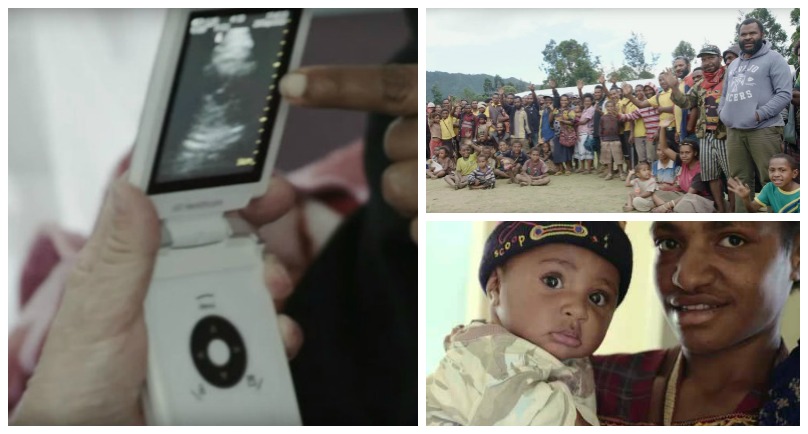By Hope Imaka – EMTV Online
Papua New Guinea’s infant mortality and maternal mortality rates are among the highest in the world. And, with the majority of PNG’s population living outside the main towns and cities, the lack of accessibility to essential services around the country is a contributing factor to these statistics.
In addition to the rugged terrain and lack of proper roads to the rural centres and their surrounding communities, there are only about 300 practicing physicians for seven + million people, and perhaps 20 dentists.
Many times, mothers in rural areas across Papua New Guinea are faced with difficulties getting to the nearest aid post. Worst case scenario being they deliver on the road in an unsensit’sed environment that exposes harm to the baby and the mother, even death. The GE Vscan Project in Enga aims to address this issue.
Through a partnership between the PNG Tribal Foundation, Premier Healthcare and GE Healthcare, 10 Vscan dual-probe pocket ultrasound units have been provided to health clinics in Enga province. American husband-and-wife physicians Dr. Mark Hauswald and Dr. Nancy Kerr travelled to the clinics, working with PNG’s Dr Solomon Kalit and health administrator Jacky Potane to show resident medical staff how to use the handheld ultrasound units.
Special Project Manager of the Port Moresby General Hospital, Jacky Potane, said “with the Portable device like the Vscan, we’re taking great care out to the people where they are, and not just one hospital and not just the people living around that hospital.”
Sister Dorota from Yampu Health Centre said, “if we go to the patrol and we see that it is breached, and then we tell the mother that she will be unable to deliver in the village, and will lead to difficulties and problems lead even to her death. So we can advise her and take her to the health centre, and protect her from there.”
The objective of this project is to get the ultrasound technology out to the people, even to those who can’t or won’t visit one of the rural clinics in the province.
Vscan handheld units can be recharged in vehicles on medical excursions away from the clinics, and as Sister Dorota has said “many times we are without light and without power, and so kind of help is really something wonderful what we can give to the mothers…”
Gary Bustin, a social entrepreneur who grew up in PNG said “we placed the Vscans strategically, so that they reach as much of the population as possible, for example, Yampu Health Centre serves 20,000 people, but they have about seven feeder clinics to their health centre.”
These Vscans will go a long way in helping to address the ongoing issue of making health care accessible to the people of Papua New Guinea; they may be small, but their ability to save lives, is very powerful.


